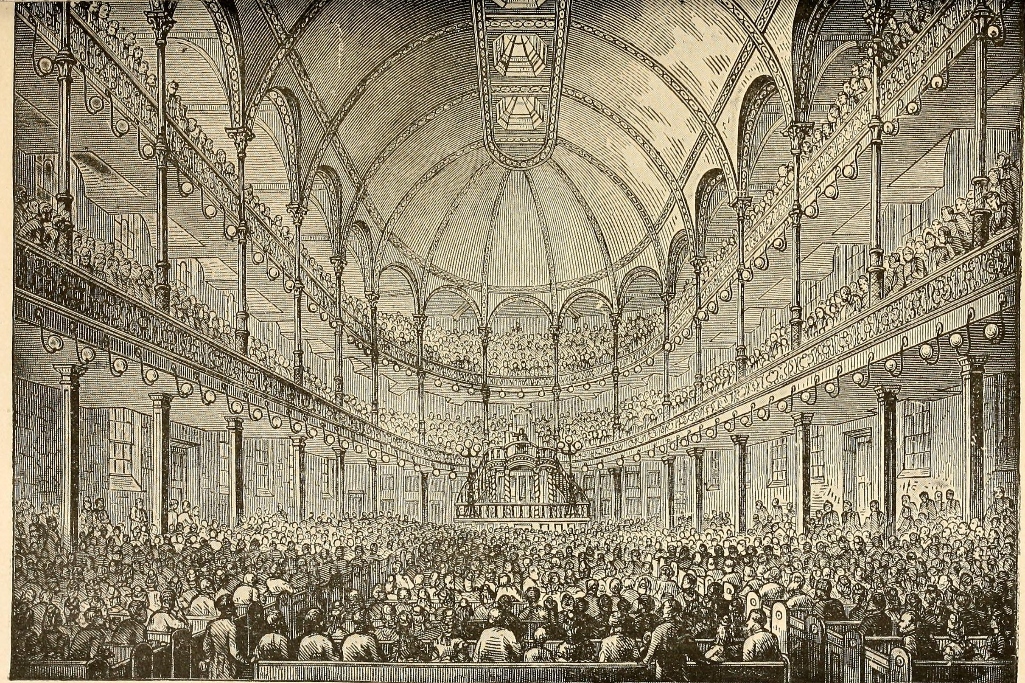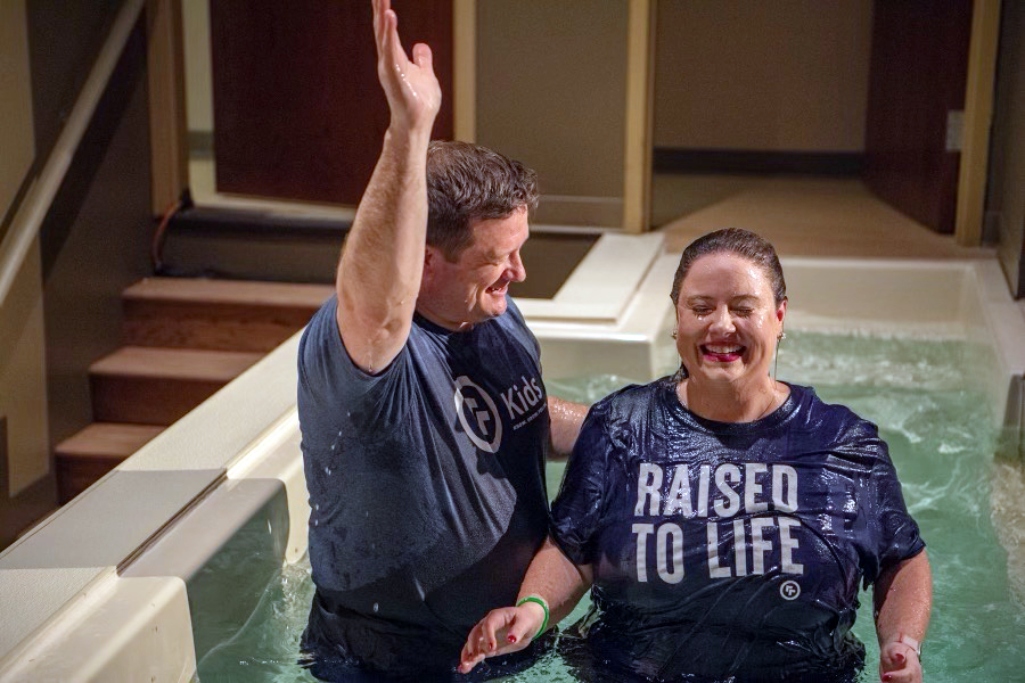
One area of controversy in the church that I have written about here and in the book, “The Worship Ministry Guidebook,” is that of singing songs from “questionable” sources. That is not a new battle in the Christian church as we may think. Indeed, Charles Spurgeon wrote about his wrestling with the same topic in the 19th century as he embarked on assembling a hymnal for his congregation.
Spurgeon’s hymnal project was to create a single hymnal for his church, Metropolitan Tabernacle, where in the past they were juggling between two hymnals that, as he described, had “difficulties connected with the remarkably complex arrangement of their contents. To strangers, it was no small task to discover the hymn selected for singing…. The providence of God brings very many new hearers within the walls of our place of worship, and many a time have we marked their futile researches and pitied the looks of despair with which they have given up all hope of finding the hymn!! and so of joining intelligently in our words of praise.”
Spurgeon goes on to point out that neither hymnal on its own was sufficient for their congregation’s needs: “Our congregation has distinctive features which are not suited by every compilation, not indeed by any known to us. We thought it best to issue a selection which would contain the cream of the books already in use among us, together with the best of all others extant up to the hour of going to press.” Spurgeon wanted to pick the best songs for his congregation from existing hymnals and choose the best “contemporary” songs that have been released since the hymnals were published.
Spurgeon was treating this as denominations in past years have taken on the project of determining the contents of the hymnals for their representative churches. It is the same work that we as worship leaders/pastors today must do to determine the songs we use in worship in our churches. What worship songs express our congregations’ distinctives? What new songs should be included? So, what songs make our song list? I speak often about the fact that every church has its own worship DNA, and while there should be some overlap in songs sung among our churches (this gets into another topic completely), each church has its own body of songs that express their worship best in their local context. Learn more about selecting songs for your congregation here.
The result of Spurgeon’s efforts was the publishing of Our Own Hymn-Book. (I have included a PDF of the entire work below for your enjoyment and reference.)
In the preface, Spurgeon discusses the controversy I mentioned at the beginning of this article. Should we sing songs from authors whose lives are not exemplary of Christian ideals or those who have different theological beliefs from us? Should we sing songs from churches or movements we have problems with (currently Hillsong, Bethel and Elevation are three that are most discussed)? Spurgeon, interestingly made many of the same arguments that I had voiced in my writings on this subject, but of course he said it much more profoundly!
“The area of our researches has been as wide as the bounds of existing religious literature, American and British, Protestant and Romish; ancient and modern. Whatever may be thought of our taste we have used it without prejudice, and a good hymn has not been rejected because of the character of its author, or the heresies of the church in whose hymnal it first occurred; so long as the language and the spirit commended the hymn to our heart we included it, and believe that we have enriched our collection thereby. The range of subjects is very extensive, comprising not only direct praise, but doctrine, experience, and exhortation; thus enabling the saints according to apostolical command to edify one another in their spiritual songs.” – Charles Spurgeon
It would seem that in Spurgeon’s view, neither the character of the author nor the heresies of the churches from where the song was birthed should prevent the song from being used in his church. Rather, each song is judged on its own merits: “so long as the language and the spirit commended the hymn to our heart we included it…”
From what he has espoused here, it would seem that Spurgeon would resoundingly say that if a song from Hillsong or Bethel stood on the merit of the truth of the text itself, then we could indeed include it in our church’s body of songs.
The question arises, however: Would Spurgeon feel the same way today with the close association of songs to those that “perform” them – representing a different culture surrounding songs today than was the reality in the 19th century? Many would say “no.” Obviously, we cannot speak for Spurgeon on this issue, but he is very clear otherwise – that a song stands on the merit of itself and not the author or institution from which it originates.
Thus the debate continues until Christ returns. What is of great importance is that we are actively assessing the songs we introduce into the diet of our churches. Dive deeper here.
Check out additional resources below
Download a PDF of Spurgeon’s hymnal, “Our Own Hymn-Book”
Go deeper on this topic: Should my church sing songs from Bethel or Hillsong?
Following is the majority of the preface as published in the hymnal. (Spellings have been retained from the original.)
PREFACE
Our congregation has long used two hymn-books; namely, the comprehensive edition of “Dr. Rippon’s Selection,” and ” Dr. Watts’s Psalms and Hymns.” Despite the judgment of many to the contrary, we believe that the store of spiritual songs contained in these two volumes is not excelled, even if equalled by any compilation extant; and we should most probably have been very well content with those books had it not been for difficulties connected with the remarkably complex arrangement of their contents. To strangers it was no small task to discover the hymn selected for singing; for, in the first place, there were two books, which was in itself an evil; but the matter was made far worse by the fact that these two volumes were each a puzzle to the uninstructed; Rippon with its parts innumerable, and Watts with first, second, and third books. The providence of God brings very many new hearers within the walls of our place of worship, and many a time have we marked their futile researches and pitied the looks of despair with which they have given up all hope of finding the hymn!!, and so of joining intelligently in our words of praise. We felt that such ought not to be the state of our service or song, and resolved if possible to reform it. None of the collections already published are exactly what our congregation needs, or we would have cheerfully adopted one of them. They are good in their way, but we need something more. Our congregation has distinctive features which are not suited by every compilation, not indeed by any known to us. We thought it best to issue a selection which would contain the cream of the books already in use among us, together with the best of all others extant up to the hour of going to press ; and having sought a blessing upon the project, we set about it with all our might, and at last have brought it to a conclusion. Our best diligence has been given to the work, and we have spared no expense : may God’s richest blessing rest upon the result of our arduous labours! Unto his glory we dedicate “Our Own Hymn Book.”
The area of our researches has been as wide as the bounds of existing religious literature, American and British, Protestant and Romish; ancient and modern. Whatever may be thought of our taste we have used it without pre judice, and a good hymn has not been rejected because of the character of its author, or the heresies of the church in whose hymnal it first occurred; so long as the language and the spirit commended the hymn to our heart we included it, and believe that we have enriched our collection thereby. The range of subjects is very extensive, comprising not only direct praise, but doctrine, experience, and exhortation; thus enabling the saints according to apostolical command to edify one another in their spiritual songs. If any object that some of the hymns are penitential or doctrinal, and therefore unfit to be sung, we reply that we find examples of such in the Book of Psalms which we have made our model in compiling our work; there we have Maschils as well 88 hosannahs, and penitential odes as well as hallelujahs. We have not been able to fall in with modern scruples, bnt have rested content with ancient pre cedents. We have not cast about for models suggested by the transient fancy of the hour, but have followed the indications given us in the Word of God and in the longestablished usage of the universal church ; desiring to be obedient to the sacred precept, “Let the word of Christ dwell in you richly in all wisdom : teaching and admonishing one another in psalms and hymns and spiritual songs, singing with grace in your hearts to the Lord.” We hope that in some few churches of the land we may be helpful to their service of sacred song, and aid them in praising the Lord.
The features which distinguish this hymn-book are such as to justify its issue, at least in the mind of the com piler, upon whom it has involved immense labour–a labour which has been its own reward. Those features are as follows:
- The hymns have been drawn from the original works of the authors, and are given as far as practicable just as they were written. This is so unusual a practice as to be almost a novelty, while the mangling of hymns has grown into a system–a system, however, to be most heartily deprecated. The very few alterations which we have personally made are either grammatical corrections or emendations which seemed to be imperatively demanded by the interests of truth, or were necessary in order to change the metre into such as could be sung.
- Subjects frequently passed over or pushed into a comer are here made conspicuously the themes of song; such, for instance, as the great doctrines of sovereign grace, the per sonal Advent of our Lord, and especially the sweetness of present communion with Him.
- Hymns suitable for revivals, prayer-meetings, and earnest addresses to sinners, are given in larger numbers and greater variety than in any other selection known to the editor, and several popular verses whose poetic merit had not commended them to previous compilers, have been adopted in deference to the Great Spirit who has so fre quently blessed the use of them both to saints and sinners.
- The Psalms of David are here, by the aid of various writers, more especially, Watts, the English and Scotch versions, Mr. Lyte and Miss Auber, all presented, in whole or in part, in forms suitable for congregational singing, and our endeavour has been to preserve the devout spirit of that inspired book even where the Jewish expressions have been necessarily changed for Christian language.
(The remainder of the preface credits people involved in the process.)
(EDITOR’S NOTE – Kenny Lamm serves as N.C. Baptists’ worship ministries strategist. This article originally appeared at RenewingWorshipNC.org.)


